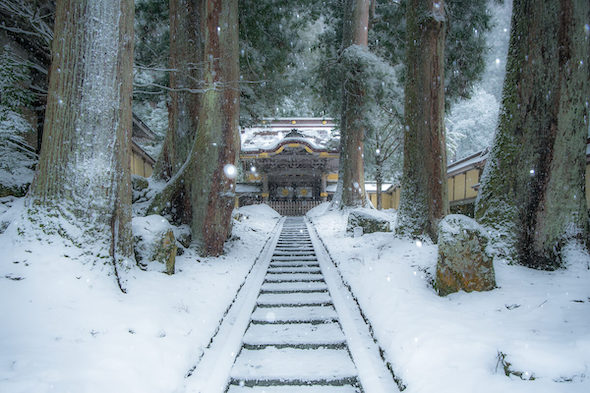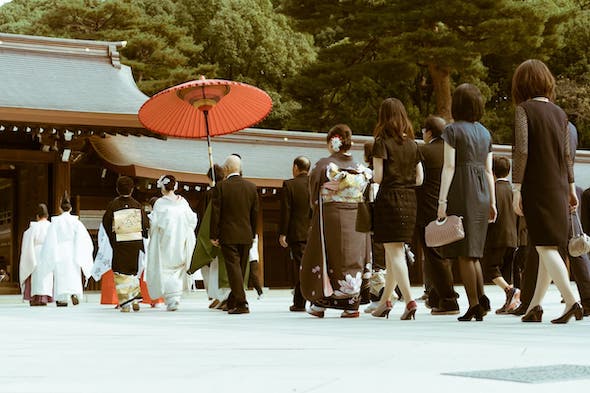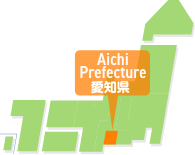What religions are practiced in Japan? Japanese people's religious beliefs and customs

Hello, this is Kano from JAC (Japan Association for Construction Human Resources).
What kind of religions are practiced in Japan?
Many people would like to learn about the characteristics of the religions practiced in Japan and apply this knowledge to their interactions with Japanese people.
This time, we will explain the religions practiced in Japan.
We will also introduce the percentage of people who believe in certain religions, their characteristics, and Japanese people's views on religion.
What religions are practiced in Japan? Introducing the percentages and major religions
According to a 2018 survey by NHK, Japan's public broadcaster, 36% of people in Japan answered that they "have a religion."
The percentage of people who believe in certain religions is as follows:
- Buddhism: 31%
- Shinto: 3%
- Christianity: 1%
- Other: 1%
Although there are few people who practice religions other than Buddhism, freedom of religion is guaranteed in Japan today.
So it doesn't matter what religion you believe in.
This time, we will explain what Buddhism, which is practiced by many people in Japan, and Shinto, a religion that developed in Japan, are.
Buddhism
Buddhism, one of the world's three major religions, is the religion with the highest percentage of Japanese people who answered that they "believe in" it.
Buddhism originated in India and spread to Southeast Asia, China, and Japan, developing in its own unique way in each region.
Its founder was Buddha, who was born in India around the 5th century BC.
It is said that it was introduced to Japan from the Korean Peninsula in 552. (There are various theories.)
Shakyamuni left behind the teachings that "you can find peace by practicing and attaining enlightenment" and "you can find salvation by respecting the Buddha."
However, there are many different sects within Buddhism, each with its own way of thinking and what is prohibited.
A temple is a building that symbolizes Buddhism.
There are many temples built all over Japan, and people come to worship there.
Temples are also places where monks and nuns live and practice.
Shinto
Shinto is a religion without a founder or scriptures.
In Shinto, we believe that gods reside in everything around us.
In Japan, it is said that God created the country of Japan.
Therefore, Shintoism arose naturally from the Japanese climate, lifestyles, and ways of thinking of the Japanese people.
The building that symbolizes Shinto is the shrine.
Various gods are enshrined at shrines.
During the New Year, many Japanese people visit shrines for "Hatsumou-de" (first visit of the year).
*Hatsumode: The first visit to a temple or shrine in the new year. It is a way to give thanks to Buddha for the previous year and pray for good fortune in the new year.
Life and Religion in Japan

Although many people in Japan practice Buddhism, over 60% of people answer that they are "non-religious (do not practice any particular religion)."
However, religious events are well established in Japan, so many people value religious beliefs even if they do not believe in a specific religion.
Some of the deeply rooted religious events in Japan are as follows:
- New Year's Hatsumode: The first visit to a temple or shrine in the new year
- Obon: A traditional event to welcome the spirits of deceased ancestors
- Bon Odori: A traditional dance performed during the Obon period.
- Shichi-go-san: An event to celebrate children's growth and visit temples and shrines
- Purification from evil spirits: Having an exorcism performed at a temple or shrine
For more information about Obon, please see our article "What is Japan's Obon? Introducing the timing and how to spend it!"
Various religions permeate life in Japan
In Japan, Shinto and Buddhism coexist in harmony.
This is called "Shinbutsu Shugo (syncretism of Shinto and Buddhism)."
In Japan, due to the syncretism of Shinto and Buddhism, temples and shrines are sometimes built on the same grounds.
Many people also practice both Buddhism and Shinto and visit both temples and shrines.
In Japan, not only Shinto and Buddhism but also various other religions coexist and are deeply ingrained in daily life.
For example, it is common for weddings to be held in Christian churches or Shinto shrines, and funerals to be held in Buddhist temples.
Many people also enjoy other religious events such as Christmas and Easter.
Summary: Many people in Japan believe in Buddhism! Other religious cultures are also prevalent in daily life
In Japan, many people practice Buddhism, while others practice Shintoism or Christianity.
In Japan, freedom of religion is guaranteed, so it is okay to believe in any religion.
Although many Japanese people say they are non-religious, religion is deeply rooted in many aspects of their lives.
There are also many religious events, and it is not bound to any one religion.
Various religions coexist in Japan and are deeply ingrained in everyday life.
About us, JAC
JAC(Japan Association for Construction Human Resources)is an organization that supports all Specified Skilled Workers working in the Japan construction industry. We work with companies that accept Specified Skilled Workers to create a work environment that is easy for everyone to work in.
We're also taking the exams you need to become a Specified Skilled Workers!
And JAC has received many requests for job offers from companies that want Specified Skilled Workers to work for.
Specified Skilled Workers Wanted! Job Listings
For those of you who want to work in Japan using Specified Skills, we are introducing jobs that match your occupation and aspirations!
If you have any problems, please feel free to contact us!








